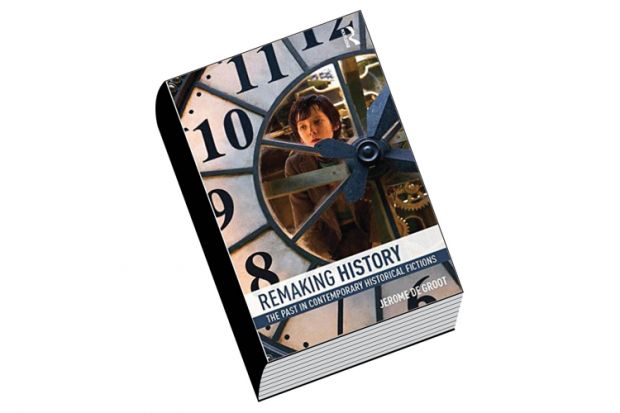The past, as we all know by now, is another country. Jerome de Groot quotes this well-worn dictum at least twice (although without crediting L. P. Hartley) because the essential unknowableness of the past – or, as he prefers to put it, its uncanniness – is a key element in his loose-limbed thesis. Which is, in so far as it can be briefly summarised, that fictional representations of the past, whether as novel, play, film or TV drama, can give us as much insight, albeit of a very different kind, as the writings of the most scrupulous and scholarly historians; that they can offer us not “history” as such, but “modes of knowing the past”.
De Groot draws his examples from a commendably wide range of cultural artefacts: not just prestige TV dramas such as Wolf Hall and critically acclaimed series such as Mad Men, but also the comfortable middlebrow fodder of Downton Abbey. Zombie movies (Dawn of the Dead) and vampire movies (Abraham Lincoln: Vampire Hunter) fall within his purview, as do Ian McEwan’s novel Atonement and macho blood-and-guts fare with titles such as Hunter’s Rage and Hawk Quest. He also considers westerns (“a fundamentally revisionist genre”) and Quentin Tarantino’s Inglourious Basterds, which, he maintains, “engages seriously with discussions of memory, appropriateness, witnessing, and the Holocaust”. One chapter considers the fetishisation of the cigarette in films and television (which takes us to Mad Men again), and Sarah Waters’ use of a ring in her novel The Night Watch as “a metonym and a material actuality”.
As the above quotes indicate, de Groot’s writing verges at times on academic pretension – phrases such as “the indeterminability of epistemology” occur a little too often for comfort, and the dread shades of Michel Foucault and Jacques Derrida loom often enough to give his arguments an oddly retro flavour. Even so, his writing is challenging and nuanced enough to keep the reader stimulated, and the occasional startlingly dogmatic assertion (“The past cannot be understood or explained”; “simple entertainment doesn’t exist”) seems to have been thrown in by way of deliberate provocation.
What keeps Remaking History readable, despite the occasional density of its critical jargon, is the sheer undisguised pleasure the author takes in tussling with his chosen texts and the way they present history – or a simulacrum of it. His appreciation of The New World (director Terrence Malick’s highly idiosyncratic 2005 treatment of the Pocahontas legend) is typical: commending the film’s “vision of the sublimity of the past”, he adds that it “demonstrates the strangeness, naïveté, incoherence, diversity, fragmentation, and possible conservatism of such texts. It is maddening and indefinable and odd and beautiful, and…this constellation of qualities all contribute fundamentally to the ways in which it presents the past”.
The plural in that quote, “ways”, is significant. To de Groot, representations of the past (in whatever medium they are couched) are essentially shifting, multiple and ambiguous, not just one from the other but within the confines of the same artefact. Given that fiction, as he more than once insists, is unable “to communicate anything other than a dream of the past”, no more than “a performance of pastness”, what it may well offer the reader (or the viewer) is not so much reality as “a layer or collage of stories”, all the richer for not being “comprehensible by mere dry, evidence-based ‘history’”. Mere dry, evidence-based historians, of course, may not be quite so beguiled.
Philip Kemp is visiting lecturer in film journalism, University of Leicester.
Remaking History: The Past in Contemporary Historical Fictions
By Jerome de Groot
Taylor & Francis, 232pp, £90.00 and £24.99
ISBN 9780415858779 and 8786
Published 4 August 2015
Register to continue
Why register?
- Registration is free and only takes a moment
- Once registered, you can read 3 articles a month
- Sign up for our newsletter
Subscribe
Or subscribe for unlimited access to:
- Unlimited access to news, views, insights & reviews
- Digital editions
- Digital access to THE’s university and college rankings analysis
Already registered or a current subscriber? Login




